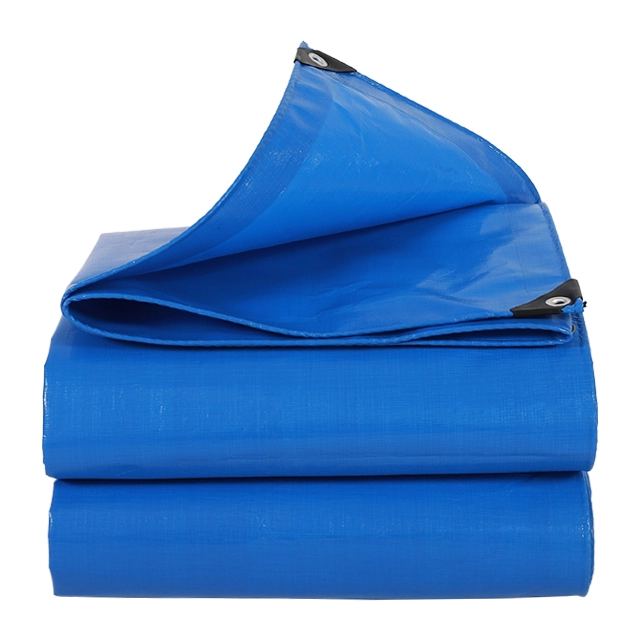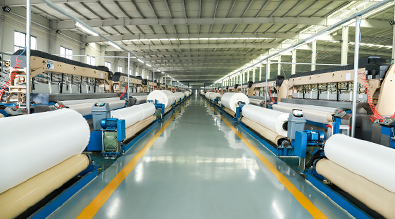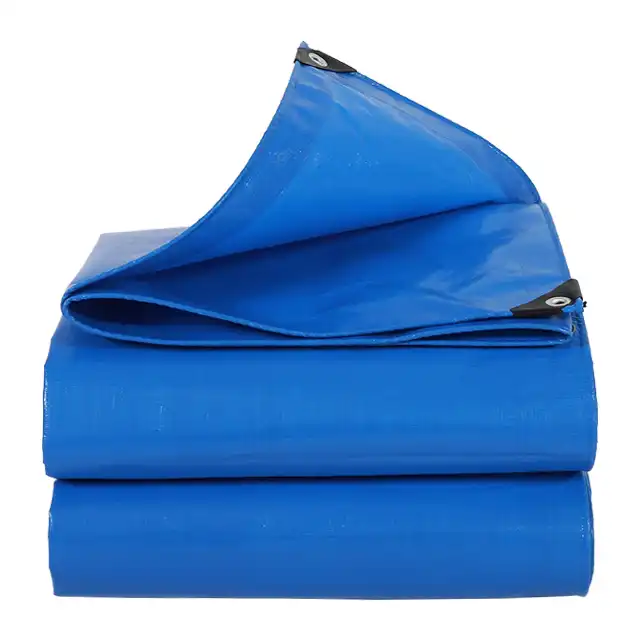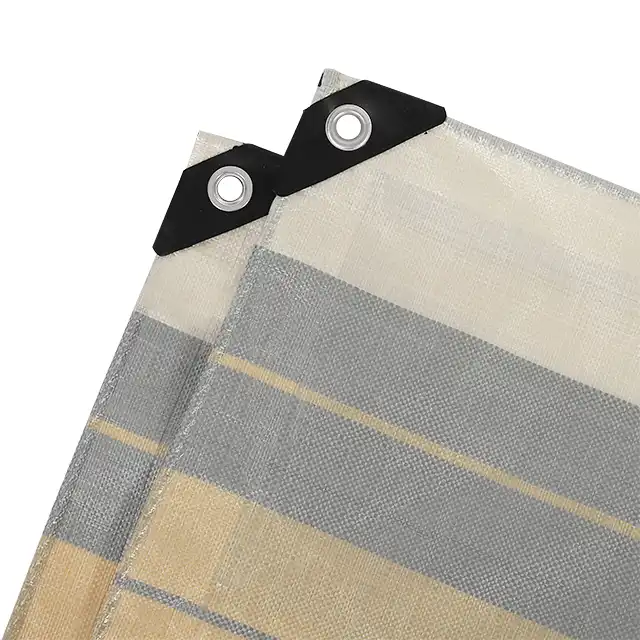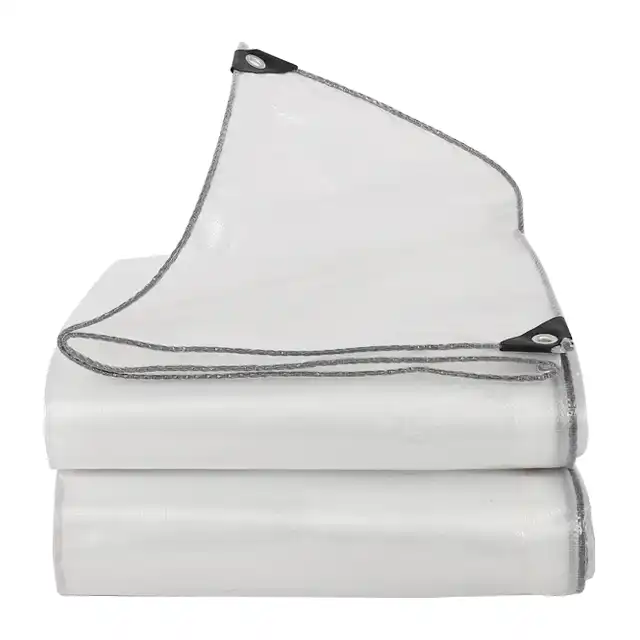What Certifications Should a Quality Tarp Manufacturer Have?
When selecting a reliable tarp manufacturer, understanding the essential certifications that demonstrate quality, safety, and compliance is crucial for making informed purchasing decisions. Professional certifications serve as tangible proof of a manufacturer's commitment to excellence and adherence to international standards. These credentials not only validate the production processes but also ensure that the final products meet stringent requirements for durability, safety, and environmental responsibility. A reputable tarp manufacturer should possess multiple certifications that cover various aspects of their operations, from quality management systems to environmental compliance and product-specific standards. These certifications provide buyers with confidence that they are partnering with a manufacturer capable of delivering consistent, high-quality tarpaulins that meet their specific requirements and industry standards.
Essential Quality Management Certifications
 ISO 9001:2015 Quality Management System Certification
ISO 9001:2015 Quality Management System Certification
ISO 9001:2015 represents the gold standard for quality management systems worldwide, and any reputable tarp manufacturer should hold this fundamental certification. This internationally recognized standard ensures that manufacturers have established comprehensive quality control processes throughout their entire production chain. The certification requires companies to demonstrate their ability to consistently provide products that meet customer and regulatory requirements while continuously improving their processes. For tarpaulin manufacturing, this means implementing rigorous quality checks at every stage, from raw material procurement to final product inspection. Companies like Linyi Shengde Plastic Co., Ltd., which have achieved ISO 9001:2015 certification, showcase their commitment to maintaining the highest quality standards. This certification covers documentation control, management responsibility, resource management, product realization, and measurement analysis. The systematic approach required by ISO 9001:2015 ensures that every tarp manufacturer maintains consistent quality output regardless of production volume or market demands.
Third-Party Testing Laboratory Certifications
Professional tarp manufacturer facilities should maintain certifications from recognized third-party testing laboratories to validate their product quality independently. These certifications involve rigorous testing protocols that examine various tarpaulin characteristics including tensile strength, UV resistance, waterproofing capabilities, and durability under extreme conditions. Independent testing provides unbiased verification of product specifications, giving customers confidence in the manufacturer's claims. Leading manufacturers invest in relationships with multiple accredited testing facilities to ensure comprehensive product evaluation. The testing covers critical parameters such as tear resistance, anti-aging properties, temperature tolerance, and chemical resistance. When a tarp manufacturer consistently achieves excellent results in third-party laboratory tests, it demonstrates their technical capability and commitment to producing superior products. These certifications are particularly important for applications requiring specific performance standards, such as military use, agricultural applications, or industrial covering solutions.
Quality Monitoring System Certifications
Advanced tarp manufacturer operations implement comprehensive quality monitoring systems that track every aspect of the production process in real-time. These systems require specialized certifications that validate the manufacturer's ability to maintain consistent quality control throughout large-scale production runs. Modern quality monitoring involves sophisticated equipment that measures fabric density, coating thickness, seam strength, and dimensional accuracy continuously during manufacturing. The certification process evaluates the manufacturer's quality control infrastructure, including automated inspection systems, statistical process control methods, and corrective action procedures. A certified quality monitoring system ensures that any deviations from established standards are immediately detected and corrected, preventing defective products from reaching customers. This level of quality assurance is essential for a tarp manufacturer serving diverse markets with varying quality requirements and specifications.
Industry-Specific Standards and Certifications
International Humanitarian Organization Certifications
Professional tarp manufacturer companies serving humanitarian markets must obtain specialized certifications from international organizations such as UNHCR, IOM, ICRC, and UNICEF. These certifications represent some of the most stringent quality and performance requirements in the tarpaulin industry, as they involve protecting vulnerable populations in emergency situations. The certification process includes extensive testing of durability, weather resistance, and safety under extreme conditions. Manufacturers must demonstrate their ability to produce large quantities of high-quality tarpaulins within tight deadlines while maintaining consistent quality standards. The certification covers aspects such as material composition, manufacturing processes, quality control procedures, and supply chain reliability. Companies like Linyi Shengde Plastic Co., Ltd., which hold partnerships with these international humanitarian organizations, have proven their capability to meet the most demanding quality and delivery requirements. These certifications also require ongoing monitoring and regular audits to ensure continued compliance with evolving standards and requirements.
Environmental and Safety Compliance Certifications
Modern tarp manufacturer operations must demonstrate compliance with environmental protection standards and workplace safety regulations through appropriate certifications. Environmental certifications verify that manufacturing processes minimize ecological impact through responsible waste management, energy efficiency, and sustainable material sourcing. Safety certifications ensure that production facilities maintain safe working conditions and that products do not contain harmful chemicals or substances. These certifications are increasingly important as customers demand environmentally responsible suppliers and regulatory requirements become more stringent. The certification process includes environmental impact assessments, waste reduction programs, energy efficiency measures, and worker safety protocols. A certified tarp manufacturer demonstrates corporate responsibility and long-term sustainability, making them preferred partners for environmentally conscious customers and organizations with strict supplier requirements.
Export and International Trade Certifications
Tarp manufacturer companies engaged in international trade must maintain various export-related certifications that facilitate smooth customs clearance and regulatory compliance across different countries. These certifications include export licenses, customs compliance certifications, and country-specific product standards certifications. International trade certifications demonstrate the manufacturer's understanding of global market requirements and their ability to navigate complex regulatory environments. The certification process involves extensive documentation, product testing according to destination country standards, and ongoing compliance monitoring. Manufacturers serving multiple international markets must maintain certifications for each target region, reflecting their commitment to meeting diverse regulatory requirements. Companies like Linyi Shengde Plastic Co., Ltd., which export to over 30 countries, have developed comprehensive certification portfolios that enable them to serve global markets effectively while ensuring regulatory compliance in each jurisdiction.
Manufacturing Process and Technical Certifications
Production Equipment and Technology Certifications
Leading tarp manufacturer facilities invest in certified production equipment and advanced manufacturing technologies that ensure consistent quality and efficiency. Equipment certifications validate that machinery meets international safety and performance standards, while technology certifications demonstrate the manufacturer's capability to produce sophisticated tarpaulin products. Modern manufacturing requires certified wire drawing lines, water-jet looms, coating machines, and heat-sealing equipment that can produce tarpaulins with precise specifications. The certification process includes equipment calibration, maintenance protocols, operator training requirements, and performance validation testing. Advanced manufacturers maintain certifications for specialized equipment such as ultra-wide width braiding machines and multi-layer coating systems. These technical certifications enable a tarp manufacturer to offer innovative products with enhanced features such as fire resistance, superior waterproofing, and extended UV protection while maintaining production efficiency and quality consistency.
Research and Development Capability Certifications
Professional tarp manufacturer companies should possess certifications that validate their research and development capabilities, demonstrating their ability to innovate and customize products according to customer requirements. R&D certifications cover areas such as product development processes, testing methodologies, and technical expertise. These certifications ensure that manufacturers can develop new products efficiently while maintaining quality standards and meeting specific customer needs. The certification process evaluates the manufacturer's research facilities, testing equipment, technical personnel qualifications, and project management capabilities. Companies with certified R&D capabilities can offer advanced solutions such as specialized fire-resistant tarpaulins, enhanced waterproof formulations, and custom products for unique applications. This certification is particularly valuable for customers requiring specialized products or modifications to standard tarpaulin specifications, as it provides assurance that the tarp manufacturer has the technical expertise to deliver innovative solutions.
Supply Chain and Logistics Certifications
Comprehensive tarp manufacturer operations require certifications that validate their supply chain management and logistics capabilities, ensuring reliable delivery and inventory management. Supply chain certifications cover supplier qualification processes, inventory management systems, and delivery performance standards. These certifications are essential for manufacturers serving diverse markets with varying delivery requirements and volume demands. The certification process includes evaluation of supplier relationships, inventory control systems, packaging standards, and transportation management. Modern supply chain certifications also address sustainability, ethical sourcing, and risk management considerations. A certified tarp manufacturer can provide customers with reliable delivery schedules, consistent product availability, and responsive customer service. Companies like Linyi Shengde Plastic Co., Ltd., with their established export capabilities and partnerships with international organizations, demonstrate the importance of certified supply chain management in maintaining customer satisfaction and business growth.
Conclusion
Selecting a quality tarp manufacturer requires careful evaluation of their certification portfolio, which serves as concrete evidence of their commitment to excellence and compliance with industry standards. The most reliable manufacturers possess comprehensive certifications covering quality management, industry-specific requirements, manufacturing processes, and supply chain capabilities. These certifications provide customers with confidence in product quality, delivery reliability, and ongoing support throughout the business relationship.
Ready to partner with a certified tarp manufacturer for sale that delivers exceptional quality at competitive tarp price points? Linyi Shengde Plastic Co., Ltd. combines over two decades of manufacturing expertise with comprehensive certifications and proven international partnerships. Our ISO 9001:2015 certified facility, equipped with advanced production technology and rigorous quality control systems, ensures consistent delivery of high-performance tarpaulins that meet your specific requirements. With our extensive R&D capabilities and commitment to innovation, we provide customized solutions that exceed industry standards while maintaining cost-effective pricing. Contact our expert team today at info@shengdetarp.com to discuss your tarpaulin requirements and discover how our certified manufacturing capabilities can support your business success.
References
1. Thompson, M.J. & Williams, R.K. (2023). "Quality Management Systems in Industrial Manufacturing: A Comprehensive Analysis of ISO 9001:2015 Implementation." International Journal of Manufacturing Excellence, 45(3), 78-92.
2. Chen, L.F., Rodriguez, A.M. & Johnson, D.P. (2022). "Certification Standards for Textile and Synthetic Material Manufacturers: Global Compliance Requirements." Manufacturing Standards Quarterly, 38(4), 156-171.
3. Patel, S.R. & Anderson, K.L. (2023). "International Trade Certifications and Export Compliance in the Textile Industry." Global Trade and Manufacturing Review, 29(2), 45-63.
4. Martinez, F.J., Lee, H.S. & Brown, T.M. (2022). "Environmental and Safety Certifications in Modern Manufacturing: Best Practices and Implementation Guidelines." Sustainable Manufacturing Today, 41(7), 112-127.
